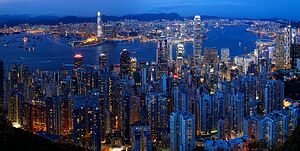If you speak to any Hong Kong resident, the conversation will invariably be directed to the subject of property prices. That’s no surprise given that earlier this year, Hong Kong was crowned the world’s least affordable city by research organization Demographia’s International Housing Affordability Survey. 2017 marks the seventh consecutive year that Hong Kong has taken the mantle.
The government has also long recognized this problem. Housing affordability has been a policy bedrock of incumbent Chief Executive CY Leung since he stepped into the role. To date, he has not been able to find a solution, other than to allow the building of more apartments by the same oligarchy of approximately five Hong Kong property developers, give or take two or three mainland corporations.
On average, an apartment in Hong Kong cost 18.1 times the gross annual median income, well out of reach of the majority of the population. In November 2016 the government introduced cooling measures, including a 15 percent stamp duty on non first-home buyers in the hope that it would dampen speculation in the property market. Together with increasing the cost of U.S. dollar (by lifting the rates to which the Hong Kong dollar is pegged), property analysts predicted at the end of last year that property prices might abate by as much as 30 percent in 2017.
Fast forward to the end of May and things have not changed. Developers caught on quickly and began offering their own 15 percent rebates to cover the stamp duty, effectively negating government efforts. This has led to new records being set for new luxury property prices. In April, new apartment sales surged to a 22-year high. In May, property prices and transactions exceeded the previous high set in 2015 by 4.5 percent according to the Hong Kong Monetary Authority (HKMA), the city’s de facto central bank.
The HKMA has responded twice in May. The first set of measures aimed at property developers. The new rules, which will take effect starting June 1, cap construction loans to 40 percent of site value and 80 percent of construction cost, with an overall limit set at 50 percent of the expected value of completed projects. The decision was driven by a fear of increasing risk as property developers were offering their own mortgages, which are considered not prudent. Analysts have said that property prices are unsustainable, according to Bloomberg.
The second set of measures was aimed squarely at speculative investors. Effective immediately, loans for properties worth under HK$10 million (US$1.3 million) would be limited to 50 percent for any borrowers with another existing mortgage, while mortgages on homes valued at greater than HK$10 million will be restricted to 40 percent.
However, buyers don’t seem to be too perturbed by the new measures yet. At a recent new property launch, as many as 4,800 buyers formed snaking queues of in an effort to secure one of the 307 flats being released, according to the South China Morning Post. The apartments are built on the old Hong Kong International Airport, Kai Tak on the iconic Victoria Harbor. The sheer number of applicants meant that a lottery had to be held to pick out eligible buyers.
The policy struggle to contain Hong Kong’s runaway property prices is set to continue as new Chief Executive Carrie Lam Cheng Yuet-ngor steps up to the plate.

































